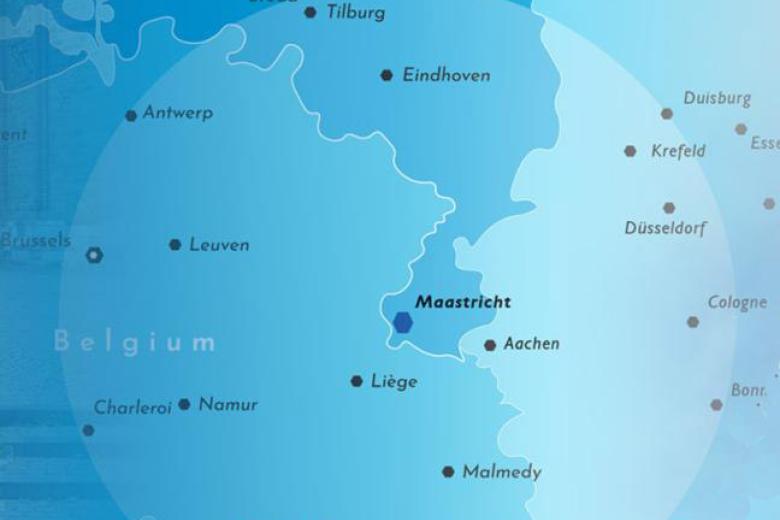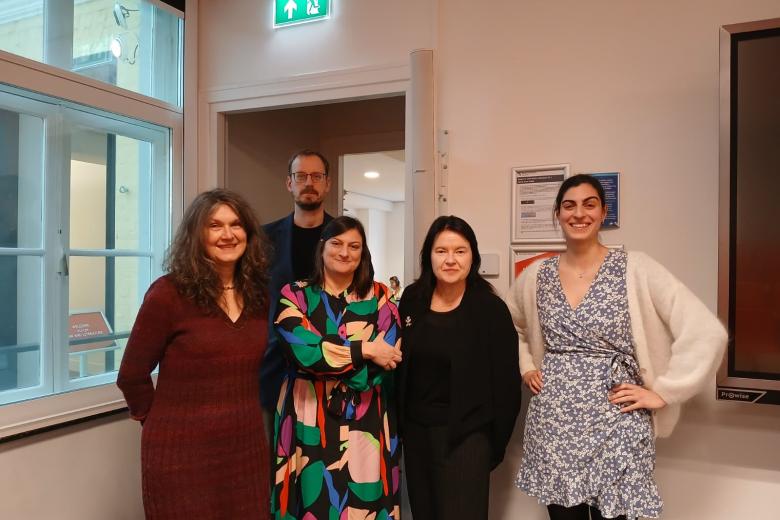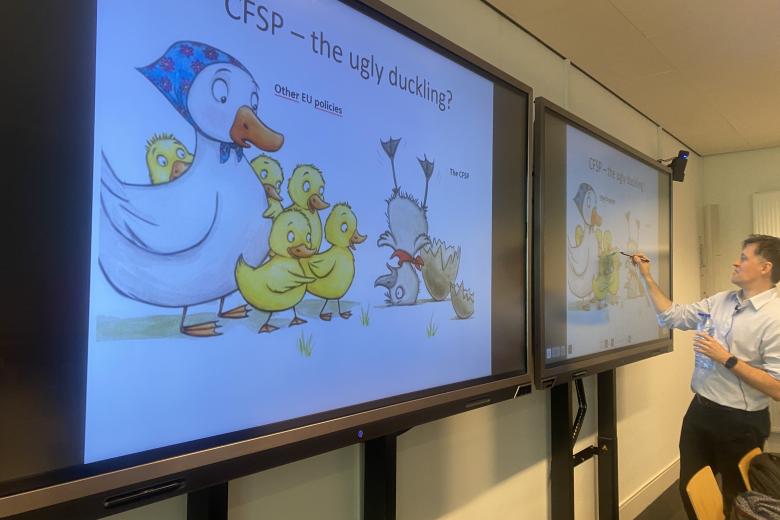Hooray! Fifteen years for the bachelor’s programme in European Studies
It was a shock, fifteen years ago: instead of the 80 that were anticipated, more than 200 students enrolled in the new Maastricht bachelor’s programme in European Studies (ES). Fifteen years later, with an average enrolment of 300 new students, the demand is still high and the unique character of the programme remains strong. On 9 and 10 June, European Studies will hold a jubilee celebration with alumni, students and staff.
The current programme director, Esther Versluis, still vividly remembers how demanding the first year was, during which she taught as an assistant professor in the programme that she was able to help shape. The programme’s creators, Tannelie Blom and Arnold Labrie, decided to unleash the multidisciplinary approach of the bachelor’s programme in Arts and Culture on the subject of Europe. This is because, to name a current example, a phenomenon like Brexit cannot be understood if you only look at it economically, legally, politically, culturally, sociologically or historically. To understand this kind of complex problem, a multidisciplinary perspective is required. This type of programme didn’t exist anywhere at the time, and European Studies in Maastricht is still the only programme in this field with such a multidisciplinary character.
Crazy year
That was appreciated by prospective students from the very beginning. “We had too small of a staff for 200 students that first year, so it was a really crazy year”, Esther Versluis recalls. “Because we absolutely didn’t want to jeopardise the Problem-Based Learning, with small groups. It was hard work, but the friendly, pioneering spirit among staff and students also made it fun.”
ES in times of crisis
The Europe of 2017 looks different on a number of points than that of 2002. For example, resistance to EU politics is growing, as is populism. ‘How useful is a programme like European Studies in these times?’, was the question posed by the programme on its Facebook page a year ago. In no time, the reactions flowed in, mostly from alumni. ‘Especially now, we need young people who understand and are able to analyse Europe's complexity’, was the general opinion that was expressed. And also: ‘European Studies is not European Union Studies. The programme isn’t only about European integration, but focuses on developments on the European continent from an international perspective. After ES, you can do a lot of different things; you learn valuable skills, not just facts.’
Contemporary challenges
That being said, the programme is adapted to the changing atmosphere in the EU. The elective subjects that students can choose in the third year focus more on the challenges facing Europe today, such as the climate debate and the role of science in it, or the changing migration patterns. In recent years, more attention has also been paid to the development of academic research and writing skills. In addition to PBL and the interdisciplinary approach, alumni particularly value the skills they learned as useful in their careers.
Bruges or Maastricht?
Every year, about 250 students graduate from the European Studies programme, so there are now about 3,750 alumni in total. They end up all over the world, working in jobs from politics and policy, to journalism, and from business to scientific research. Versluis: “They often work in Brussels, with one of the European institutions, or interest groups, or as members of the European Parliament, as well as at national ministries and embassies. And at public affairs departments of companies, people who know how Europe works are often in demand.”
In fifteen years, the Maastricht programme has earned a place next to the College of Europe in Bruges, where until fifteen years ago most people were educated for jobs in Brussels. These days, the question is: ‘Have you been educated in Bruges or Maastricht?’. That's absolutely something to raise a glass to on 9 and 10 June.
More information about the festivities on the webpage.
Also read
-
DigiMach places Meuse-Rhine Euroregion at the heart of industrial digitalisation
DigiMach (Digital Machining) is a new cross-border project uniting Belgium, Germany, and the Netherlands around a common goal: accelerating the digitalisation of the machining industry in the Meuse-Rhine Euroregion.
-
Globalisation & Law Network seminar with Áine Ryall
On 24 November 2025, the Globalisation & Law Network, together with the Institute for Globalisation and International Regulation (IGIR) held the seminar with Professor Áine Ryall.
-
Guest Lecture: Lóránt Havas explores current challenges in the EU’s CFSP
Lóránt Havas delivered a guest lecture on the EU’s evolving CFSP, discussing key legal developments, institutional challenges, and new defence instruments.